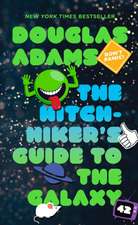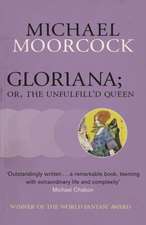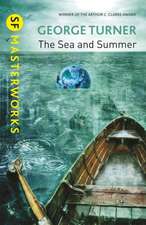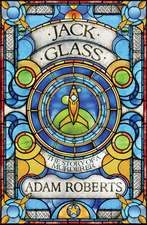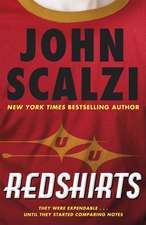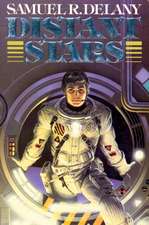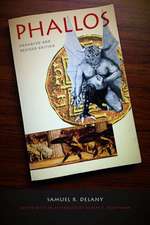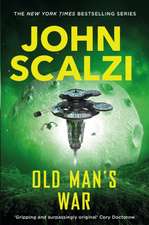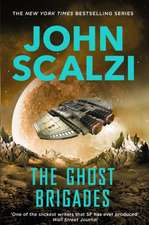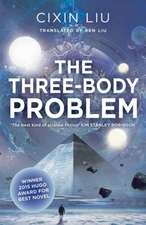Nova
Autor Samuel R. Delanyen Limba Engleză Paperback – 31 mai 2002
| Toate formatele și edițiile | Preț | Express |
|---|---|---|
| Paperback (2) | 48.91 lei 3-5 săpt. | +25.06 lei 10-14 zile |
| Orion Publishing Group – 12 noi 2015 | 48.91 lei 3-5 săpt. | +25.06 lei 10-14 zile |
| Vintage Publishing – 31 mai 2002 | 88.25 lei 3-5 săpt. |
Preț: 88.25 lei
Nou
Puncte Express: 132
Preț estimativ în valută:
16.89€ • 17.68$ • 13.97£
16.89€ • 17.68$ • 13.97£
Carte disponibilă
Livrare economică 15-29 martie
Preluare comenzi: 021 569.72.76
Specificații
ISBN-13: 9780375706707
ISBN-10: 0375706704
Pagini: 256
Dimensiuni: 132 x 204 x 18 mm
Greutate: 0.27 kg
Ediția:Vintage Books.
Editura: Vintage Publishing
ISBN-10: 0375706704
Pagini: 256
Dimensiuni: 132 x 204 x 18 mm
Greutate: 0.27 kg
Ediția:Vintage Books.
Editura: Vintage Publishing
Notă biografică
Samuel R. Delany lives in Harlem, New York.
Extras
chapter one
"Hey, Mouse! Play us something," one of the mechanics called from the bar.
"Didn't get signed on no ship yet?" chided the other. "Your spinal socket'll rust up. Come on, give us a number."
The Mouse stopped running his finger around the rim of his glass. Wanting to say "no" he began a "yes." Then he frowned.
The mechanics frowned too:
He was an old man.
He was a strong man.
As the Mouse pulled his hand to the edge of the table, the derelict lurched forward. Hip banged the counter. Long toes struck a chair leg: the chair danced on the flags.
Old. Strong. The third thing the Mouse saw: Blind.
He swayed before the Mouse's table. His hand swung up; yellow nails hit the Mouse's cheek. (Spider's feet?) "You, boy . . ."
The Mouse stared at the pearls behind rough, blinking lids.
"You, boy. Do you know what it was like?"
Must be blind, the Mouse thought. Moves like blind. Head sits forward so on his neck. And his eyes--
The codger flapped out his hand, caught a chair, and yanked it to him. It rasped as he fell on the seat. "Do you know what it looked like, felt like, smelt like--do you?"
The Mouse shook his head; the fingers tapped his cheek.
"We were moving out, boy, with the three hundred suns of the Pleiades glittering like a puddle of jeweled milk on our left, and all blackness wrapped around our right. The ship was me; I was the ship. With these sockets--" he tapped the insets in his wrists against the table: click "--I was plugged into my vane-projector. Then--" the stubble on his jaw rose and fell with the words "--centered on the dark, a light! It reached out, grabbed our eyes as we lay in the projection chambers and wouldn't let them go. It was like the universe was torn and all day raging through. I wouldn't go off sensory input. I wouldn't look away. All the colors you could think of were there, blotting the night. And finally the shock waves: the walls sang! Magnetic inductance oscillated over our ship, nearly rattled us apart. But then it was too late. I was blind." He sat back in his chair. "I'm blind, boy. But with a funny kind of blindness: I can see you. I'm deaf. But if you talked to me, I could understand most of what you said. Olfactory nerves mostly shorted out at the brain end. Same with the taste buds over my tongue." His hand went flat on the Mouse's cheek. "I can't feel the texture of your face. Most of the tactile nerve endings were killed too. Are you smooth--or are you bristly and gristly as I am?" He laughed on yellow teeth in red, red gums. "Old Dan is blind in a funny way." His hand slipped down the Mouse's vest, catching the laces. "A funny way, yes. Most people go blind in blackness. I have a fire in my eyes. I have that whole collapsing sun in my head, my visual tectum shorted wide open, jumping, leaping, sparking. It's as though the light lashed the rods and cones of my retina to constant stimulation, balled up a rainbow and stuffed each socket full. That's what I'm seeing now. Then you, outlined here, highlighted there, a solarized ghost across hell from me. Who are you?"
"Pontichos," the Mouse offered. His voice sounded like wool with sand, grinding. "Pontichos Provechi."
Dan's face twisted. "Your name is . . . What did you say? It's shaking my head apart. There's a choir crouched in my ears, shouting down into my skull twenty-six hours a day. The brain-end synapses, they're sending out static, the death rattle that sun's been dying ever since. Over that, I can just hear your voice, like an echo of something shouted a hundred yards off." Dan coughed and sat back, hard. "Where are you from?" He wiped his mouth.
"Here in Draco," the Mouse said. "Earth."
"Earth? Where? America? You come from a little white house on a tree-lined street, with a bicycle in the garage?"
Oh yes, the Mouse thought. Blind, and deaf too. The Mouse's speech was good, but he'd never even tried to correct his accent.
"Me. I'm from Australia. From a white house. I lived just outside Melbourne. Trees. I had a bicycle. But that was a long time ago. A long time, wasn't it, boy? You know Australia, on Earth?"
"Been through." The Mouse squirmed in his chair and wondered how to get away.
"Yes. That's how it was. But you don't know, boy! You can't know what it's like to stagger through the rest of your life with a nova dug into your brain, remembering Melbourne, remembering the bicycle. What did you say your name was?"
The Mouse looked left at the window, right at the door.
"I can't remember it. The sound of that sun blots out everything."
The mechanics, who had been listening till now, turned to the bar.
"Can't remember a thing any more!"
At another table a black-haired woman fell back to her card game with her blond companion.
"Oh, I've been sent to doctors! They say if they cut out the nerves, optic and aural, slice them off at the brain, the roaring, the light--it might stop! Might?" He raised his hands to his face. "And the shadows of the world that come in, they'd stop too. Your name? What's your name?"
The Mouse got the words ready in his mouth, along with, excuse me, huh? I gotta go.
But old Dan coughed, clutched at his ears.
"Ahhh! That was a pig trip, a dog trip, a trip for flies! The ship was the Roc and I was a cyborg stud for Captain Lorq Von Ray. He took us"--Dan leaned across the table--"this close"--his thumb brushed his forefinger--"this close to hell. And brought us back. You can damn him, and damn Illyrion for that, boy, whoever you are. Wherever you're from!" Dan barked, flung back his head; his hands jumped on the table.
The bartender glanced over. Somebody signaled for a drink. The bartender's lips tightened, but he turned off, shaking his head.
"Pain--" Dan's chin came down--"after you've lived with it long enough, isn't pain anymore. It's something else. Lorq Von Ray is mad! He took us as near the edge of dying as he could. Now he's abandoned me, nine-tenths a corpse, here at the rim of the Solar System. And where's he gone--" Dan breathed hard. Something flapped in his lungs. "Where's blind Dan going to go now?"
Suddenly he grabbed the sides of the table.
"Where is Dan going to go!"
The Mouse's glass tumbled, smashed on the stone.
"You tell me!"
He shook the table again.
The bartender was coming over.
Dan stood, overturning his chair, and rubbed his knuckles on his eyes. He took two staggering steps through the sunburst that rayed the floor. Two more. The last left long maroon prints.
The black-haired woman caught her breath. The blond man closed the cards.
One mechanic started forward, but the other touched his arm.
Dan's fists struck the swinging doors. He was gone.
The Mouse looked around. Glass on stone again, but softer. The bartender had plugged the sweeper into his wrist and the machine hissed over dirt and bloody fragments. "You want another drink?"
"No," the Mouse's voice whispered from his ruined larynx. "No. I was finished. Who was that?"
"Used to be a cyborg stud on the Roc. He's been making trouble around here for a week. Lots of places throw him out soon as he comes in the door. How come you been having such a hard time getting signed on?"
"I've never been on a star-run before," came the Mouse's rough whisper. "I just got my certificate two years back. Since then I've been plugged in with a small freight company working around inside the Solar System on the triangle run."
"I could give you all kinds of advice." The bartender unplugged the sweeper from the socket on his wrist. "But I'll restrain myself. Ashton Clark go with you." He grinned and went back behind the bar.
The Mouse felt uncomfortable. He hooked a dark thumb beneath the leather strap over his shoulder, got up and started for the door.
"Eh, Mouse, come on. Play something for--"
The door closed behind him.
The shrunken sun lay jagged gold on the mountains. Neptune, huge in the sky, dropped mottled light on the plain. The starships hulked in the repair pits half a mile away.
The Mouse started down the strip of bars, cheap hotels, and eating places. Unemployed and despondent, he had bummed in most of them, playing for board, sleeping in the corner of somebody's room when he was pulled in to entertain at an all-night party. That wasn't what his certificate said he should be doing. That wasn't what he wanted.
He turned down the boardwalk that edged Hell3.
To make the satellite's surface habitable, Draco Commission had planted Illyrion furnaces to melt the moon's core. With surface temperature at mild autumn, atmosphere generated spontaneously from the rocks. An artificial ionosphere kept it in. The other manifestations of the newly molten core were Hells1 to 52, volcanic cracks that had opened in the crust of the moon. Hell3 was almost a hundred yards wide, twice as deep (a flaming worm broiled on its bottom), and seven miles long. The cañon flickered and fumed under pale night.
As the Mouse walked by the abyss, hot air caressed his cheek. He was thinking about blind Dan. He was thinking about the night beyond Pluto, beyond the edge of the stars called Draco. And was afraid. He fingered the leather sack against his side.
When the Mouse was ten years old, he'd stolen that sack. It held what he was to love most.
Terrified, he'd fled from the music stalls beneath white vaults, down between the stinking booths of suede. He clutched the sack to his belly, jumped over a carton of meerschaum pipes that had broken open, spilling across the dusty stone, passed under another arch, and for twenty meters darted through the crowds roaming the Golden Alley, where velvet display windows were alive with light and gold. He sidestepped a boy treading the heels of his shoes and swinging a three-handled tray of tea glasses and coffee cups. As the Mouse dodged, the tray went up and over; tea and coffee shook, but nothing spilled. The Mouse fled on.
Another turn took him past a mountain of embroidered slippers.
Mud splattered the next time his canvas shoes hit the broken flooring. He stopped, panting, looked up.
No vaults. Light rain drifted between the buildings. He held the sack tighter, smeared his damp face with the back of his hand, and started up the curving street.
Rotten, ribbed, and black, the Burnt Tower of Constantine jutted from the parking lot. As he reached the main street, people hurried about him, splashing in the thin slip covering the stones. The leather had grown sweaty on his skin.
Good weather? He would have romped down the backstreet shortcut. But this: he kept to the main way, taking some protection from the monorail. He pushed his way among the businessmen, the students, the porters.
A sledge rumbled on the cobbles. The Mouse took a chance and swung up on the yellow running board. The driver grinned--gold-flecked crescent in a brown face--and let him stay.
Ten minutes later, heart still hammering, the Mouse swung off and ducked through the courtyard of New Mosque. In the drizzle a few men washed their feet in the stone troughs at the wall. Two women came from the flapping door at the entrance, retrieved their shoes, and started down the gleaming steps, hastening in the rain.
Once, the Mouse had asked Leo just when New Mosque had been built. The fisherman from the Pleiades Federation--who always walked with one foot bare--had scratched his thick blond hair as they gazed at the smoky walls rising to the domes and spiking minarets. "About a thousand years ago, was. But that only a guess is."
The Mouse was looking for Leo now.
He ran out the courtyard and dodged between the trucks, cars, dolmushes, and trollies crowding the entrance of the bridge. On the crosswalk, under a streetlamp, he turned through an iron gate and hurried down the steps. Small boats clacked together in the sludge. Beyond the dinghies, the mustard water of the Golden Horn heaved about the pilings and the hydrofoil docks. Beyond the Horn's mouth, across the Bosphorus, the clouds had torn.
Beams slanted through and struck the wake of a ferry plowing toward another continent. The Mouse paused on the steps to stare over the glittering strait as more and more light fell through.
Windows in foggy Asia flashed on sand-colored walls. It was the beginning of the effect that had caused the Greeks, two thousand years before, to call the Asian side of the city Chrysopolis--Gold City. Today it was Uskudar.
"Hey, Mouse!" Leo hailed him from the red, rocking deck. Leo had built an awning over his boat, set up wooden tables, and placed barrels around for chairs. Black oil boiled in a vat, heated by an ancient generator caked with grease. Beside it, on a yellow slicker, was a heap of fish. The gills had been hooked around the lower jaws so that each fish had a crimson flower at its head. "Hey, Mouse, what you got?"
In better weather fishermen, dockworkers, and porters lunched here. The Mouse climbed over the rail as Leo threw in two fish. The oil erupted yellow foam.
"I got what . . . what you were talking about. I got it . . . I mean I think it's the thing you told me about." The words rushed, breathy, hesitant, breathy again.
Leo, whose name, hair, and chunky body had been given him by German grandparents (and whose speech pattern had been lent by his childhood on a fishing coast of a world whose nights held ten times as many stars as Earth's), looked confused. Confusion became wonder as the Mouse held out the leather sack.
Leo took it with freckled hands. "You sure, are? Where you--"
Two workmen stepped on the boat. Leo saw alarm cross the Mouse's face and switched from Turkish to Greek. "Where did you this find?" The sentence pattern stayed the same in all languages.
"I stole it." Even though the words came with gushes of air through ill-anchored vocal cords, at ten the orphaned gypsy spoke some half dozen of the languages bordering the Mediterranean much more facilely than people like Leo who had learned his tongues under a hypno-teacher.
The construction men, grimy from their power shovels (and hopefully limited to Turkish) sat down at the table, massaging their wrists and rubbing their spinal sockets on the smalls of their back where the great machines had been plugged into their bodies. They called for fish.
"Hey, Mouse! Play us something," one of the mechanics called from the bar.
"Didn't get signed on no ship yet?" chided the other. "Your spinal socket'll rust up. Come on, give us a number."
The Mouse stopped running his finger around the rim of his glass. Wanting to say "no" he began a "yes." Then he frowned.
The mechanics frowned too:
He was an old man.
He was a strong man.
As the Mouse pulled his hand to the edge of the table, the derelict lurched forward. Hip banged the counter. Long toes struck a chair leg: the chair danced on the flags.
Old. Strong. The third thing the Mouse saw: Blind.
He swayed before the Mouse's table. His hand swung up; yellow nails hit the Mouse's cheek. (Spider's feet?) "You, boy . . ."
The Mouse stared at the pearls behind rough, blinking lids.
"You, boy. Do you know what it was like?"
Must be blind, the Mouse thought. Moves like blind. Head sits forward so on his neck. And his eyes--
The codger flapped out his hand, caught a chair, and yanked it to him. It rasped as he fell on the seat. "Do you know what it looked like, felt like, smelt like--do you?"
The Mouse shook his head; the fingers tapped his cheek.
"We were moving out, boy, with the three hundred suns of the Pleiades glittering like a puddle of jeweled milk on our left, and all blackness wrapped around our right. The ship was me; I was the ship. With these sockets--" he tapped the insets in his wrists against the table: click "--I was plugged into my vane-projector. Then--" the stubble on his jaw rose and fell with the words "--centered on the dark, a light! It reached out, grabbed our eyes as we lay in the projection chambers and wouldn't let them go. It was like the universe was torn and all day raging through. I wouldn't go off sensory input. I wouldn't look away. All the colors you could think of were there, blotting the night. And finally the shock waves: the walls sang! Magnetic inductance oscillated over our ship, nearly rattled us apart. But then it was too late. I was blind." He sat back in his chair. "I'm blind, boy. But with a funny kind of blindness: I can see you. I'm deaf. But if you talked to me, I could understand most of what you said. Olfactory nerves mostly shorted out at the brain end. Same with the taste buds over my tongue." His hand went flat on the Mouse's cheek. "I can't feel the texture of your face. Most of the tactile nerve endings were killed too. Are you smooth--or are you bristly and gristly as I am?" He laughed on yellow teeth in red, red gums. "Old Dan is blind in a funny way." His hand slipped down the Mouse's vest, catching the laces. "A funny way, yes. Most people go blind in blackness. I have a fire in my eyes. I have that whole collapsing sun in my head, my visual tectum shorted wide open, jumping, leaping, sparking. It's as though the light lashed the rods and cones of my retina to constant stimulation, balled up a rainbow and stuffed each socket full. That's what I'm seeing now. Then you, outlined here, highlighted there, a solarized ghost across hell from me. Who are you?"
"Pontichos," the Mouse offered. His voice sounded like wool with sand, grinding. "Pontichos Provechi."
Dan's face twisted. "Your name is . . . What did you say? It's shaking my head apart. There's a choir crouched in my ears, shouting down into my skull twenty-six hours a day. The brain-end synapses, they're sending out static, the death rattle that sun's been dying ever since. Over that, I can just hear your voice, like an echo of something shouted a hundred yards off." Dan coughed and sat back, hard. "Where are you from?" He wiped his mouth.
"Here in Draco," the Mouse said. "Earth."
"Earth? Where? America? You come from a little white house on a tree-lined street, with a bicycle in the garage?"
Oh yes, the Mouse thought. Blind, and deaf too. The Mouse's speech was good, but he'd never even tried to correct his accent.
"Me. I'm from Australia. From a white house. I lived just outside Melbourne. Trees. I had a bicycle. But that was a long time ago. A long time, wasn't it, boy? You know Australia, on Earth?"
"Been through." The Mouse squirmed in his chair and wondered how to get away.
"Yes. That's how it was. But you don't know, boy! You can't know what it's like to stagger through the rest of your life with a nova dug into your brain, remembering Melbourne, remembering the bicycle. What did you say your name was?"
The Mouse looked left at the window, right at the door.
"I can't remember it. The sound of that sun blots out everything."
The mechanics, who had been listening till now, turned to the bar.
"Can't remember a thing any more!"
At another table a black-haired woman fell back to her card game with her blond companion.
"Oh, I've been sent to doctors! They say if they cut out the nerves, optic and aural, slice them off at the brain, the roaring, the light--it might stop! Might?" He raised his hands to his face. "And the shadows of the world that come in, they'd stop too. Your name? What's your name?"
The Mouse got the words ready in his mouth, along with, excuse me, huh? I gotta go.
But old Dan coughed, clutched at his ears.
"Ahhh! That was a pig trip, a dog trip, a trip for flies! The ship was the Roc and I was a cyborg stud for Captain Lorq Von Ray. He took us"--Dan leaned across the table--"this close"--his thumb brushed his forefinger--"this close to hell. And brought us back. You can damn him, and damn Illyrion for that, boy, whoever you are. Wherever you're from!" Dan barked, flung back his head; his hands jumped on the table.
The bartender glanced over. Somebody signaled for a drink. The bartender's lips tightened, but he turned off, shaking his head.
"Pain--" Dan's chin came down--"after you've lived with it long enough, isn't pain anymore. It's something else. Lorq Von Ray is mad! He took us as near the edge of dying as he could. Now he's abandoned me, nine-tenths a corpse, here at the rim of the Solar System. And where's he gone--" Dan breathed hard. Something flapped in his lungs. "Where's blind Dan going to go now?"
Suddenly he grabbed the sides of the table.
"Where is Dan going to go!"
The Mouse's glass tumbled, smashed on the stone.
"You tell me!"
He shook the table again.
The bartender was coming over.
Dan stood, overturning his chair, and rubbed his knuckles on his eyes. He took two staggering steps through the sunburst that rayed the floor. Two more. The last left long maroon prints.
The black-haired woman caught her breath. The blond man closed the cards.
One mechanic started forward, but the other touched his arm.
Dan's fists struck the swinging doors. He was gone.
The Mouse looked around. Glass on stone again, but softer. The bartender had plugged the sweeper into his wrist and the machine hissed over dirt and bloody fragments. "You want another drink?"
"No," the Mouse's voice whispered from his ruined larynx. "No. I was finished. Who was that?"
"Used to be a cyborg stud on the Roc. He's been making trouble around here for a week. Lots of places throw him out soon as he comes in the door. How come you been having such a hard time getting signed on?"
"I've never been on a star-run before," came the Mouse's rough whisper. "I just got my certificate two years back. Since then I've been plugged in with a small freight company working around inside the Solar System on the triangle run."
"I could give you all kinds of advice." The bartender unplugged the sweeper from the socket on his wrist. "But I'll restrain myself. Ashton Clark go with you." He grinned and went back behind the bar.
The Mouse felt uncomfortable. He hooked a dark thumb beneath the leather strap over his shoulder, got up and started for the door.
"Eh, Mouse, come on. Play something for--"
The door closed behind him.
The shrunken sun lay jagged gold on the mountains. Neptune, huge in the sky, dropped mottled light on the plain. The starships hulked in the repair pits half a mile away.
The Mouse started down the strip of bars, cheap hotels, and eating places. Unemployed and despondent, he had bummed in most of them, playing for board, sleeping in the corner of somebody's room when he was pulled in to entertain at an all-night party. That wasn't what his certificate said he should be doing. That wasn't what he wanted.
He turned down the boardwalk that edged Hell3.
To make the satellite's surface habitable, Draco Commission had planted Illyrion furnaces to melt the moon's core. With surface temperature at mild autumn, atmosphere generated spontaneously from the rocks. An artificial ionosphere kept it in. The other manifestations of the newly molten core were Hells1 to 52, volcanic cracks that had opened in the crust of the moon. Hell3 was almost a hundred yards wide, twice as deep (a flaming worm broiled on its bottom), and seven miles long. The cañon flickered and fumed under pale night.
As the Mouse walked by the abyss, hot air caressed his cheek. He was thinking about blind Dan. He was thinking about the night beyond Pluto, beyond the edge of the stars called Draco. And was afraid. He fingered the leather sack against his side.
When the Mouse was ten years old, he'd stolen that sack. It held what he was to love most.
Terrified, he'd fled from the music stalls beneath white vaults, down between the stinking booths of suede. He clutched the sack to his belly, jumped over a carton of meerschaum pipes that had broken open, spilling across the dusty stone, passed under another arch, and for twenty meters darted through the crowds roaming the Golden Alley, where velvet display windows were alive with light and gold. He sidestepped a boy treading the heels of his shoes and swinging a three-handled tray of tea glasses and coffee cups. As the Mouse dodged, the tray went up and over; tea and coffee shook, but nothing spilled. The Mouse fled on.
Another turn took him past a mountain of embroidered slippers.
Mud splattered the next time his canvas shoes hit the broken flooring. He stopped, panting, looked up.
No vaults. Light rain drifted between the buildings. He held the sack tighter, smeared his damp face with the back of his hand, and started up the curving street.
Rotten, ribbed, and black, the Burnt Tower of Constantine jutted from the parking lot. As he reached the main street, people hurried about him, splashing in the thin slip covering the stones. The leather had grown sweaty on his skin.
Good weather? He would have romped down the backstreet shortcut. But this: he kept to the main way, taking some protection from the monorail. He pushed his way among the businessmen, the students, the porters.
A sledge rumbled on the cobbles. The Mouse took a chance and swung up on the yellow running board. The driver grinned--gold-flecked crescent in a brown face--and let him stay.
Ten minutes later, heart still hammering, the Mouse swung off and ducked through the courtyard of New Mosque. In the drizzle a few men washed their feet in the stone troughs at the wall. Two women came from the flapping door at the entrance, retrieved their shoes, and started down the gleaming steps, hastening in the rain.
Once, the Mouse had asked Leo just when New Mosque had been built. The fisherman from the Pleiades Federation--who always walked with one foot bare--had scratched his thick blond hair as they gazed at the smoky walls rising to the domes and spiking minarets. "About a thousand years ago, was. But that only a guess is."
The Mouse was looking for Leo now.
He ran out the courtyard and dodged between the trucks, cars, dolmushes, and trollies crowding the entrance of the bridge. On the crosswalk, under a streetlamp, he turned through an iron gate and hurried down the steps. Small boats clacked together in the sludge. Beyond the dinghies, the mustard water of the Golden Horn heaved about the pilings and the hydrofoil docks. Beyond the Horn's mouth, across the Bosphorus, the clouds had torn.
Beams slanted through and struck the wake of a ferry plowing toward another continent. The Mouse paused on the steps to stare over the glittering strait as more and more light fell through.
Windows in foggy Asia flashed on sand-colored walls. It was the beginning of the effect that had caused the Greeks, two thousand years before, to call the Asian side of the city Chrysopolis--Gold City. Today it was Uskudar.
"Hey, Mouse!" Leo hailed him from the red, rocking deck. Leo had built an awning over his boat, set up wooden tables, and placed barrels around for chairs. Black oil boiled in a vat, heated by an ancient generator caked with grease. Beside it, on a yellow slicker, was a heap of fish. The gills had been hooked around the lower jaws so that each fish had a crimson flower at its head. "Hey, Mouse, what you got?"
In better weather fishermen, dockworkers, and porters lunched here. The Mouse climbed over the rail as Leo threw in two fish. The oil erupted yellow foam.
"I got what . . . what you were talking about. I got it . . . I mean I think it's the thing you told me about." The words rushed, breathy, hesitant, breathy again.
Leo, whose name, hair, and chunky body had been given him by German grandparents (and whose speech pattern had been lent by his childhood on a fishing coast of a world whose nights held ten times as many stars as Earth's), looked confused. Confusion became wonder as the Mouse held out the leather sack.
Leo took it with freckled hands. "You sure, are? Where you--"
Two workmen stepped on the boat. Leo saw alarm cross the Mouse's face and switched from Turkish to Greek. "Where did you this find?" The sentence pattern stayed the same in all languages.
"I stole it." Even though the words came with gushes of air through ill-anchored vocal cords, at ten the orphaned gypsy spoke some half dozen of the languages bordering the Mediterranean much more facilely than people like Leo who had learned his tongues under a hypno-teacher.
The construction men, grimy from their power shovels (and hopefully limited to Turkish) sat down at the table, massaging their wrists and rubbing their spinal sockets on the smalls of their back where the great machines had been plugged into their bodies. They called for fish.
Recenzii
“[Nova] reads like Moby-Dick at a strobe-light show!” —Roger Sale, Time Magazine
“Here are (at least some of) the ways you can read Nova: As fast-action far-flung interstellar adventure; as archetypal mystical/mythical allegory (in which the Tarot and the Grail both figure prominently); as modern myth told in the SF idiom . . . The reader observes, recollect, or participates in a range of personal human experience including violent pain and disfigurement, sensory deprivation and overload, man-machine communion, the drug experience, the creative experience—and interpersonal relationships which include incest and assassination, father-son, leader-follower, human-pet, and lots more.” —Judith Merrill, The Magazine of Fantasy and Science Fiction
“Samuel R. Delany is the most interesting author of science fiction writing in English today.” —Gerald Jonas, New York Times Book Review
“Samuel R. Delany, right now, as of this book, Nova, not as of some future book or some accumulated body of work, is the best science-fiction writer in the world, at a time when competition for that status is intense. I don’t see how a science fiction writer can do more than wring your heart while explaining how it works. No writer can. The special thing that science fiction does is to first credibly place the heart in an unconventional environment. A particular thing that recent science fiction has been doing is to make that unconventional environment a technological one. Another has been to make it a romantic one, sometimes calling it an intensely humanistic one . . . All of these things are accomplished in Nova.” —A.J. Budrys, Galaxy Magazine
“One of the most complete and fully realized pictures of an interstellar society that I have ever read.” —Norman Spinrad, Science Fiction Times
“Here are (at least some of) the ways you can read Nova: As fast-action far-flung interstellar adventure; as archetypal mystical/mythical allegory (in which the Tarot and the Grail both figure prominently); as modern myth told in the SF idiom . . . The reader observes, recollect, or participates in a range of personal human experience including violent pain and disfigurement, sensory deprivation and overload, man-machine communion, the drug experience, the creative experience—and interpersonal relationships which include incest and assassination, father-son, leader-follower, human-pet, and lots more.” —Judith Merrill, The Magazine of Fantasy and Science Fiction
“Samuel R. Delany is the most interesting author of science fiction writing in English today.” —Gerald Jonas, New York Times Book Review
“Samuel R. Delany, right now, as of this book, Nova, not as of some future book or some accumulated body of work, is the best science-fiction writer in the world, at a time when competition for that status is intense. I don’t see how a science fiction writer can do more than wring your heart while explaining how it works. No writer can. The special thing that science fiction does is to first credibly place the heart in an unconventional environment. A particular thing that recent science fiction has been doing is to make that unconventional environment a technological one. Another has been to make it a romantic one, sometimes calling it an intensely humanistic one . . . All of these things are accomplished in Nova.” —A.J. Budrys, Galaxy Magazine
“One of the most complete and fully realized pictures of an interstellar society that I have ever read.” —Norman Spinrad, Science Fiction Times
Descriere
Science fiction master Delany's novel is the story of Lorq von Ray, an intrepid spaceship captain determined to travel through the core of a recently imploded sun. Wise, witty, and whirlingly paced, this tale is the highest order of speculative fiction as it casts a new light on some of humanity's oldest truths and most enduring myths.


